Zip Up Sustainability: Reusable Alternatives to Single-Use Zip Bags in the Kitchen
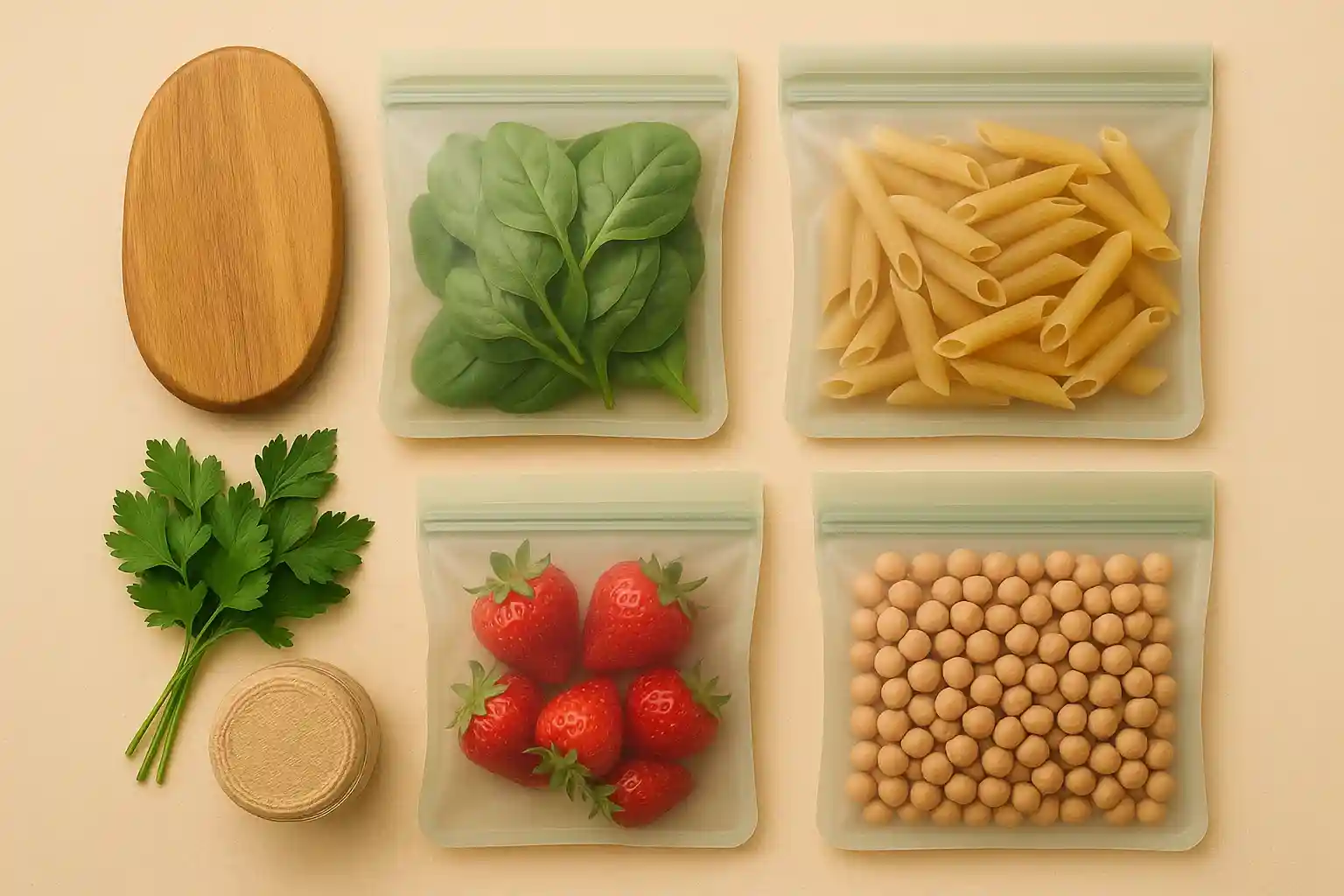
The convenience of single-use zip bags has made them a ubiquitous staple in kitchens worldwide, used for everything from storing leftovers and packing lunches to organizing snacks and freezing food. Their ease of use and ability to create a sealed environment have made them a seemingly indispensable tool. However, the sheer volume of these disposable plastic bags consumed daily contributes significantly to the ever-growing problem of plastic waste. Their short lifespan, coupled with the challenges of recycling them effectively due to food contamination and their flexible nature, makes single-use zip bags a major contributor to landfill accumulation and environmental pollution. Embracing a zero-waste kitchen necessitates a critical evaluation of our reliance on these disposable products and a conscious shift towards more sustainable and reusable alternatives.
The lifecycle of a single-use zip bag is a prime example of linear consumption. Derived from fossil fuels, their production is energy-intensive, and their fate after a brief period of use is almost invariably the trash can. Unlike more rigid plastics, these bags are often contaminated with food residue, making them difficult to recycle. Their thin and flexible nature also poses challenges for recycling machinery. The staggering number of zip bags used globally each day results in a massive amount of waste that persists in the environment for centuries, breaking down into harmful microplastics that contaminate our soil, water, and even the air we breathe. Recognizing this unsustainable pattern, many individuals are seeking more responsible and eco-conscious ways to store their food.
Fortunately, a variety of durable, washable, and reusable alternatives can readily replace single-use zip bags in our kitchens, offering the same functionality with a significantly reduced environmental impact. By embracing silicone reusable bags, utilizing sturdy stainless steel containers, or opting for breathable cotton snack bags, we can significantly reduce our plastic waste and adopt a more sustainable approach to food storage. These reusable options are designed for repeated daily use, offering a cost-effective and environmentally friendly way to keep our food fresh and organized.
Zipping Towards Zero Waste: Exploring Reusable Alternatives for Kitchen Storage
Moving beyond the convenience of single-use zip bags opens up a world of more environmentally conscious and often more effective ways to store our food:
Silicone Reusable Bags: The Flexible and Versatile Solution
Silicone reusable bags offer a fantastic and versatile alternative to single-use zip bags. Made from food-grade silicone, these bags are durable, leak-proof, and can be used for storing a wide variety of foods, from liquids and leftovers to sandwiches and snacks. Unlike plastic zip bags, silicone bags can be washed and reused countless times, making them a cost-effective and zero-waste option. Brands like Stasher and SPLF offer various sizes and styles of silicone reusable bags, many of which are also freezer and microwave safe.
Stainless Steel Containers: The Durable and Leak-Proof Choice
Stainless steel containers with airtight lids provide a robust and leak-proof alternative for storing food without relying on single-use plastic bags. Made from food-grade stainless steel, these containers are incredibly durable, resistant to rust and odors, and won't leach harmful chemicals into food. They are ideal for packing lunches, storing leftovers, and even freezing meals. Investing in a set of high-quality stainless steel containers eliminates the need for countless single-use zip bags and provides a safe and reliable way to store food in the refrigerator, freezer, or pantry.
Cotton Snack Bags: The Breathable and Washable Option
Cotton snack bags, made from breathable and washable fabrics like organic cotton or hemp, offer a sustainable alternative for storing dry snacks like nuts, crackers, fruits, and vegetables. Unlike plastic zip bags that can trap moisture, cotton bags allow food to breathe, helping to keep it fresh. These bags can be washed and reused repeatedly, making them a zero-waste option for packing lunches and storing snacks. Many independent sellers and brands offer a variety of sizes and designs of reusable cotton snack bags.
Embracing a Zero-Waste Kitchen: Mindful Storage Habits
By consciously choosing silicone reusable bags, stainless steel containers, and cotton snack bags over single-use zip bags, we can significantly reduce the amount of plastic waste generated in our kitchens and embrace a more sustainable approach to food storage. These durable and reusable alternatives not only benefit the environment but also ensure the safety and freshness of our food for years to come.
Related Blogs
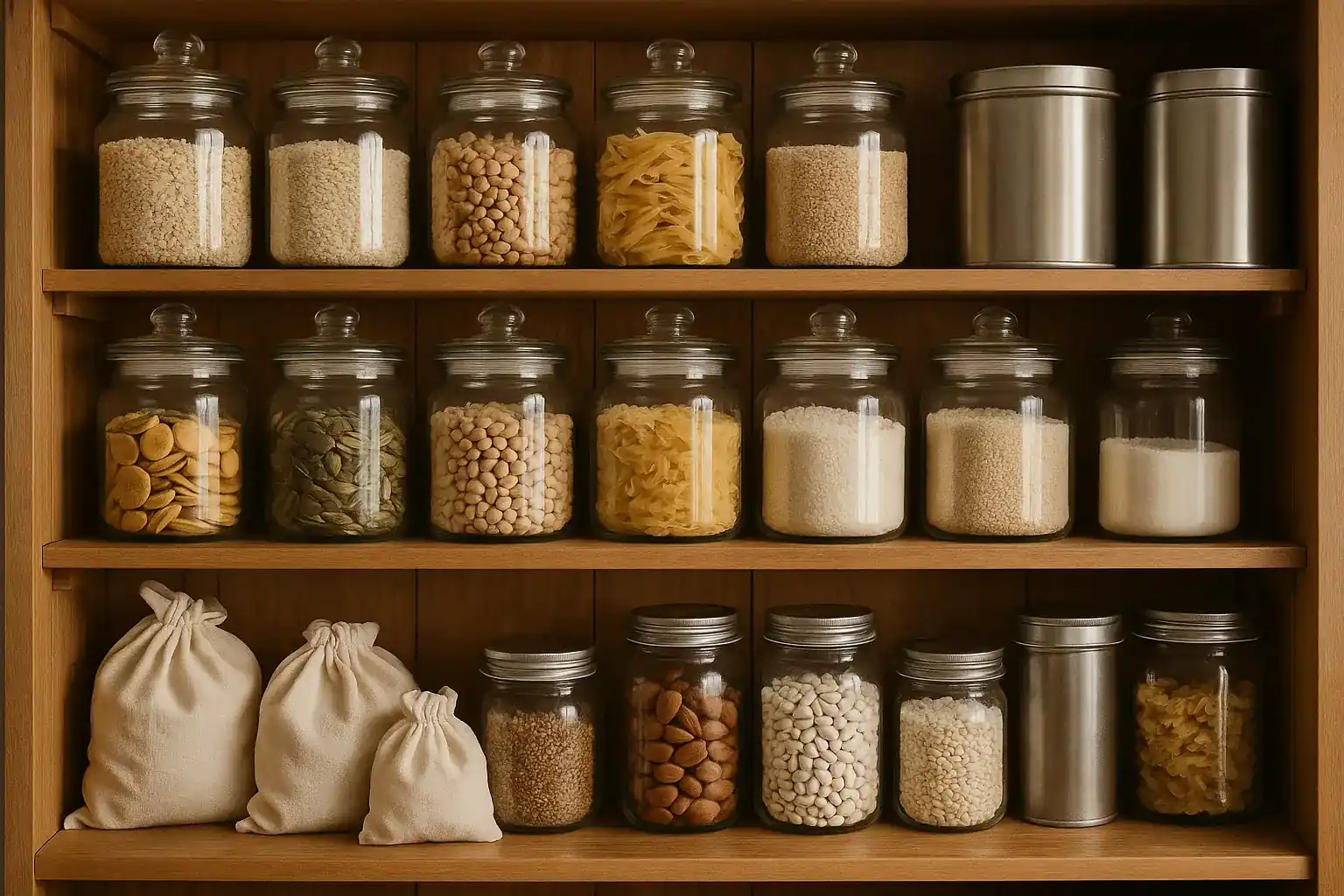
Say Goodbye to Single-Use: 10 Easy Swaps for a Plastic-Free Pantry
Insights on 10 easy swaps for a plastic-free pantry in a sustainable way.
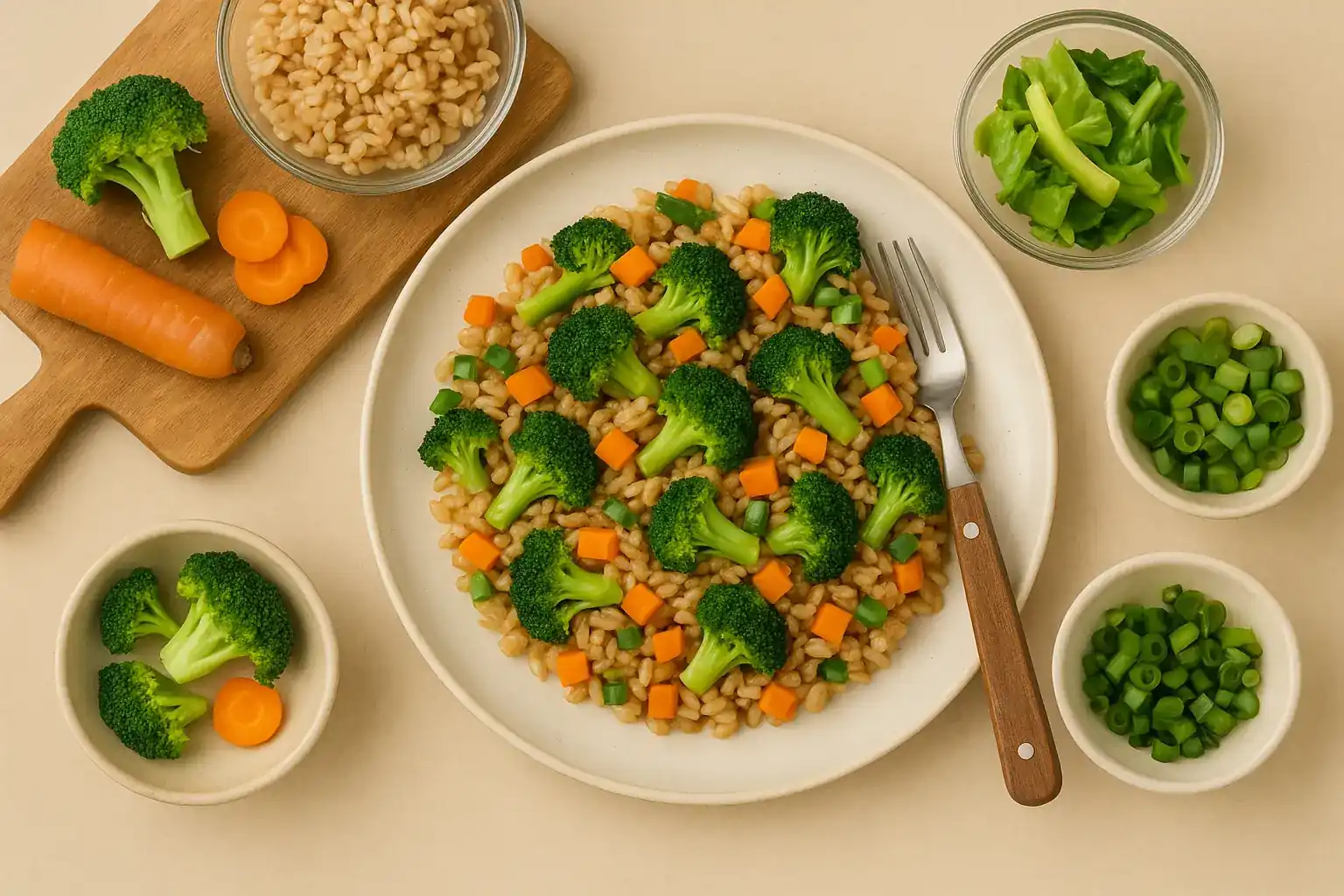
A Week of Delicious Transformations: Zero-Waste Recipes Using Your Leftovers
Insights on a week of zero-waste recipes using leftovers in a sustainable way.
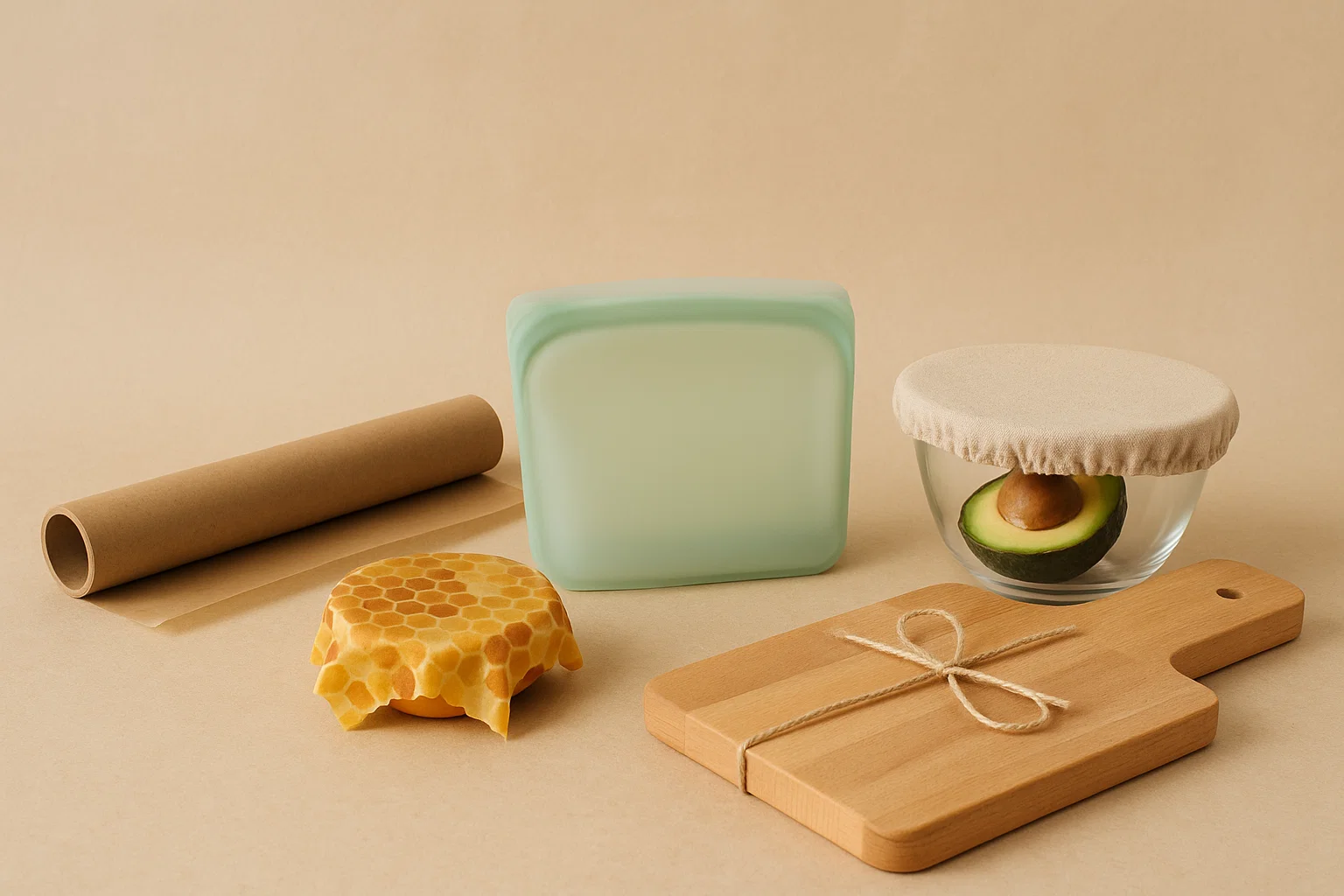
Beyond the Foil: Reusable Alternatives for Sustainable Baking and Food Storage
Opt for reusable silicone baking mats, covered bakeware, and beeswax wraps instead of aluminum foil.

Brew Better, Waste Less: Sustainable Alternatives to Single-Use Coffee Pods
Lower waste and enjoy better flavor with reusable pods, French presses, or Moka pots.
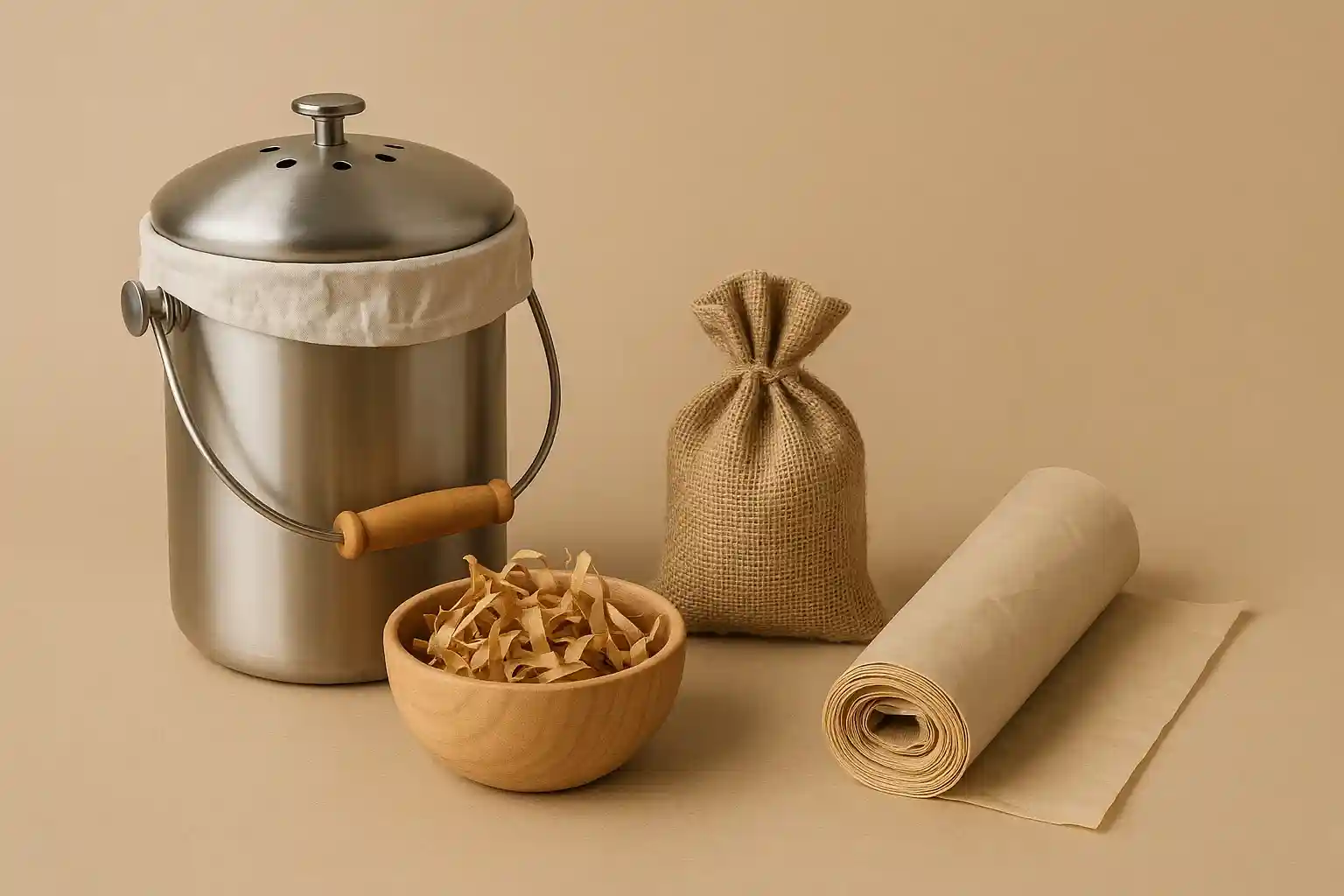
Compost Without the Carry-On: Sustainable Alternatives to Store-Bought Compost Bags
Reduce unnecessary plastic in composting with newspaper liners, bag-free bins, or DIY liners.
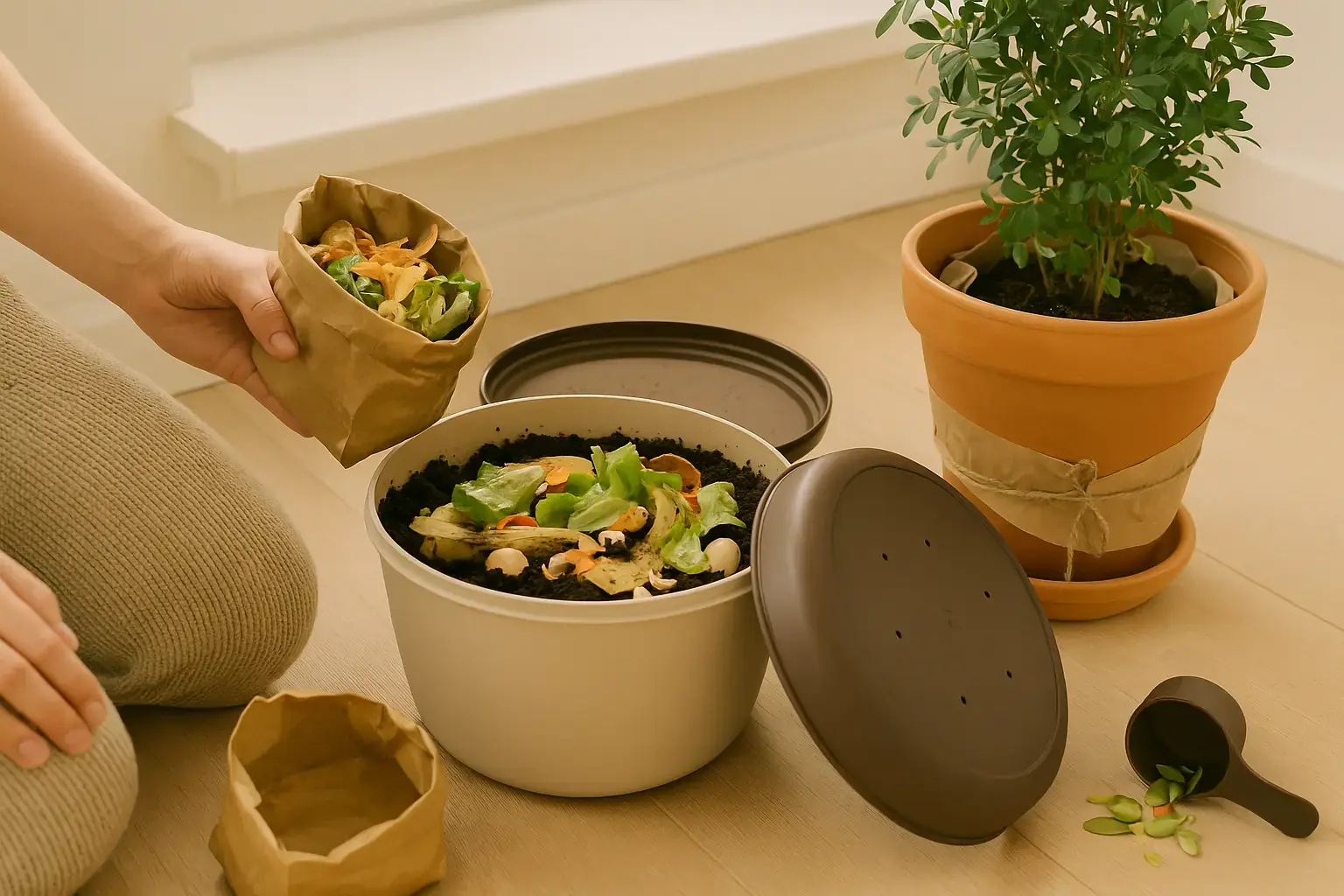
Compost Happens (Even in Apartments!): Your Beginner's Guide
Practical advice and actionable tips for composting 101.
Stay in the Loop
Get tips and insights tailored to your interests — no spam, just sustainability.